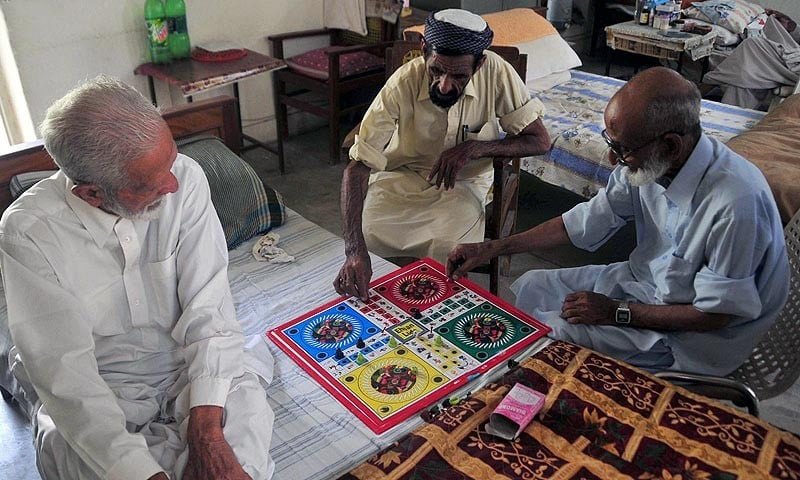
A care home for the elderly may ease aging issues

Left at Darul Shafqat Zanana at the age of 10, Khalida Adeeb Khanum grew up to become a doctor, did several jobs in and outside Pakistan, married twice but remained childless. Now at age 68, she is living at Happy Home for senior citizens in Green Town, Lahore.
Khanum is the youngest sister of three brothers but they don’t seem to have time for her. "I have no family. Nobody visits or calls me. If holding many degrees is regarded as education, I come from such a background but if education cannot make you humane and give you good sense, then what good is it? I wish my brothers had sympathy for me -- could give me shelter," she says.
The men she married were also "unsympathetic. Oh, how I hate men!"
She has been at Happy Home for nearly two years. "This place is better than many others that I have seen. I like the fact that I have my own kitchen where I can prepare food of my choice though I get food from this facility three times a day. Their food is good. They also give fruits, which is no mean thing. Ordinary people can’t afford to have fruits daily," she adds.
Run privately, Happy Home’s board of directors has 25 members. The afternoon meal on Thursdays (usually murghi ka salan) is sent by someone who has a banquet hall. There are some other people like him who cater to the old people here and do so quietly.
There are issues as well. Health is one. "If you fall ill they will call your family to come over and take charge. I had a road accident a year back -- two fractures in the leg. A passerby took me to the hospital. I remained admitted at CMH for a month. I went there because I had served as a doctor in the army. The nurses were kind but the pain was excruciating. With diabetes and hypertension, I was very irritable."
Khanum always keep money with her, knowing there is no one to fall back on.
"When I came to Happy Home from hospital my room mate, Nazneen, took care of me," she informs. Nazneen had to leave shortly after the accident.
"Since then I am mostly alone. There is no facility of an attendant here if you fall ill. Nobody seems to leave their room to enquire about another. Aren’t we all here because there is no home to live in? Then why don’t we visit each other? I feel very lonely and had requested the administration to send someone to me as I want to meet people."
Just close to Happy Home is a medical facility run by Rotary Club where old men and women go to when in need of medical help. "When medicines are expensive we have to purchase from the market," says a woman who has been here for the last six years, wishing not to be named. She doesn’t have a son. Her daughter is educated, married, and an earning hand.
The woman, in her 60s, says she married off her only daughter soon after her husband’s death. "The would-be groom’s parents then said they would take me in. That never happened. I am okay here. This is a good facility in many ways. My daughter donates some money to the institution. She is good."
Happy Home is a shelter for people who are not comfortable elsewhere. Here, spacious rooms with two beds, two side tables, two chairs and two tables are there for everyone. Facing the bedrooms is a small sitting room and a kitchen -- a complete unit for two. There are 22 women and 24 men living here at present while there is room for 50 in all.
The men and women at this centre are mostly childless.
Tayyaba Zahid’s husband works in Muscat, has his own home, and another wife from whom he has children. But Tayyaba is happy to be here. She has made friends with her room mate.
The oldest person living in Happy Home is 90 years old, a retired headmistress.
Mehmood Akhter, in his 70s, says he has come to this place "by accident." Akhter was living with his sister’s daughter who moved to London, leaving him here. Now this is his home. "I have requested the administration not to give my body to Edhi for burial when I die and bury me themselves."
Men and women who are educated can be engaged to teach children in their respective shelter homes. That would give them a sense of well-being as they will see themselves as useful members of society. They need to interact more.